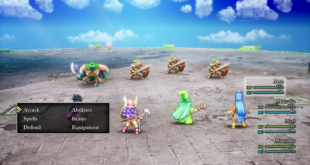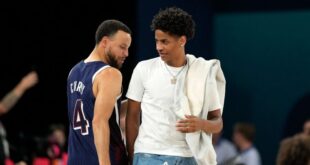YouTube will roll out a new generative AI video tool named Veo later this year that’ll allow creators to create 6-second clips with nothing more than a text prompt, the company said Wednesday at its Made on YouTube event located at its Pier 57 offices in New York on Wednesday.
Veo, an update to last year’s Dream Screen, made in collaboration with Google DeepMind, uses AI to generate videos and images that can then be integrated into YouTube Shorts. At the moment, Veo is limited to YouTube’s short-form video section.
Google brought in YouTubers and showed off videos made by creators to demonstrate the tech. Adrian Bliss, a creator who’s well known for making skits anthropomorphizing functions within the human body, showed off a video in which he had to save a princess in a castle. He green screened himself on top of a brick road and castle using AI. YouTube also invited musician d4vd, whose music video for Here With Me has amassed over 135 million views, who — with the help of Veo — created a music video inspired by Disney’s Up, creating characters in a stop motion aesthetic.
AI-generated videos will be marked with SynthID to communicate to viewers that content was made with AI.
With the launch of ChatGPT in late 2022, AI has quickly taken over all parts of the internet. Social media sites TikTok and Instagram have become inundated with AI, with short-form videos being made entirely with AI. These videos can include AI kittens screaming as they’re being thrown out of a burning building and an orange kitten being bullied by a classroom full of white kittens.
At the moment, it’s hard to gauge exactly what percentage of content on TikTok, Instagram or YouTube is made with AI, but research published by Amazon Web Services in June claims that 57% of the internet web-based text is now AI-generated. There are concerns that the influx of spam AI content across the internet, where people make low-effort content entirely with AI, is leading to a “zombie internet.”
Even then, as AI companies pop up offering tools to generate text, images and video, Google aims to also be a leader in the space. It helps that Google has a deep well of YouTube videos to pull from to train its AI models, a prospect so enticing that other companies like OpenAI reportedly did the same without Google’s permission.
Creators at the Made by YouTube Event directed questions about the rights ownership of content generated with AI in YouTube Shorts to Neal Mohan, CEO of YouTube. Mohan swerved around the question, saying that monetization for YouTubers would remain the same but wouldn’t explicitly state who the rights belonged to. When asked if creators could opt out of having their content used to train AI, Mohan said that implementing such an opt-out feature wouldn’t be easy and would slow YouTube’s ability to push content creation.
Other announcements included a music generation tool, which would help creators avoid copyright strikes, the Inspiration Tab in YouTube Studio, which can aid in brainstorming, AI autodubbing that not only dubs a video in another language but keeps a person’s inflections and intonations as well and updates to the TV experience.
 synnbiob
synnbiob


